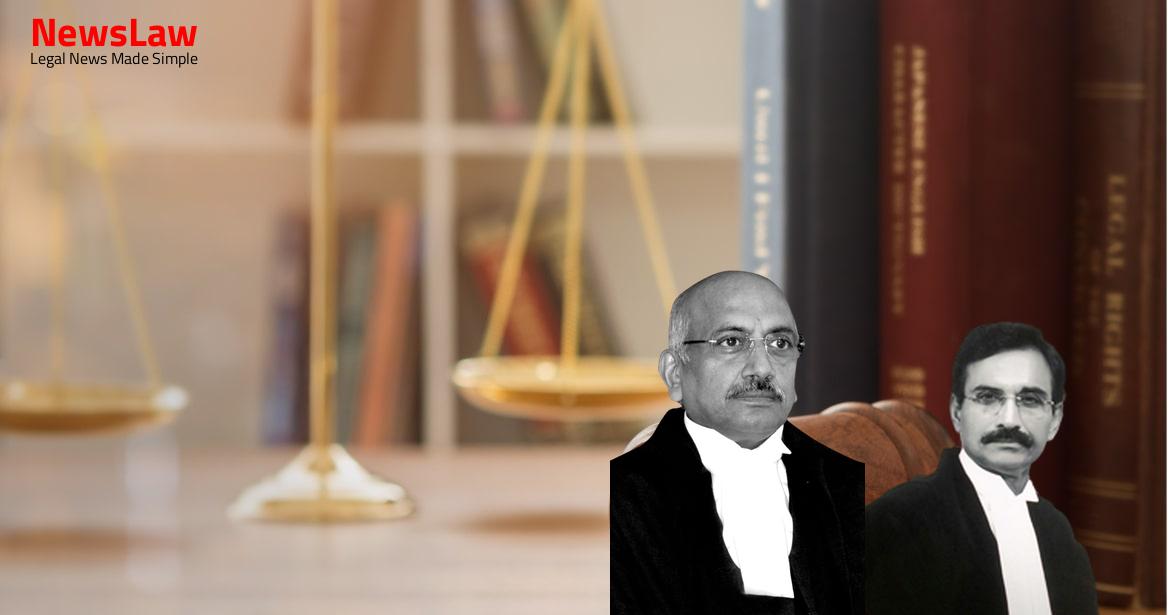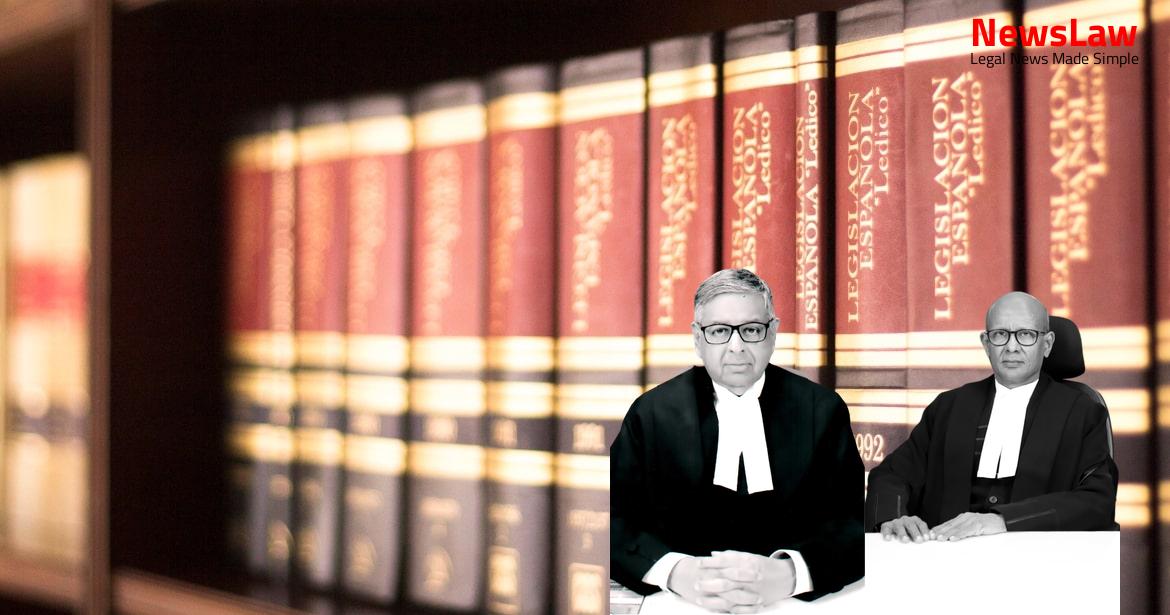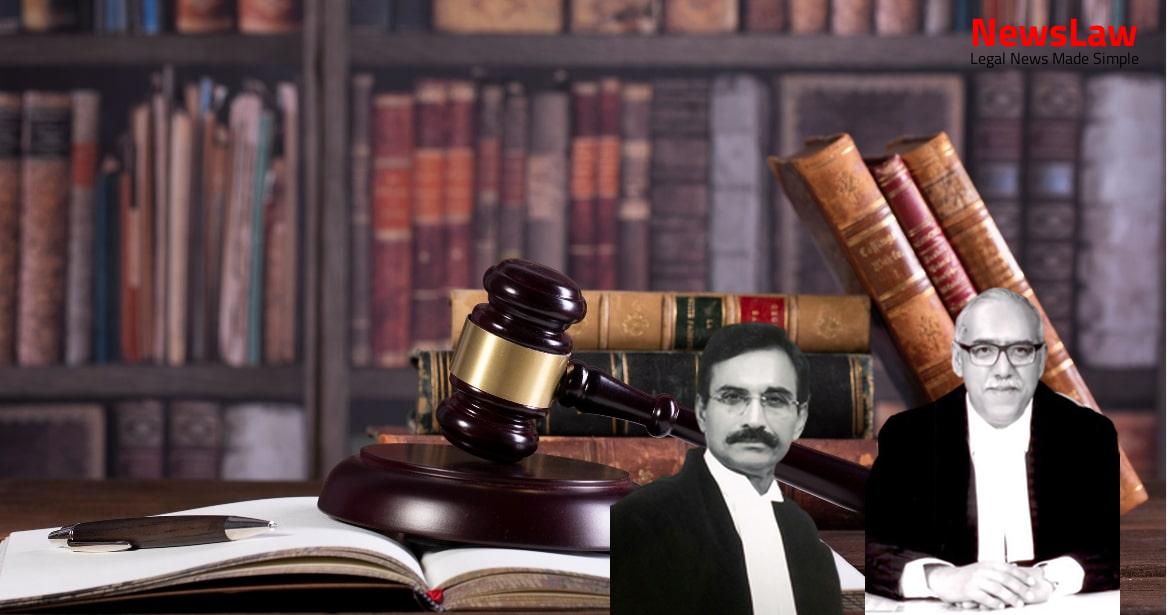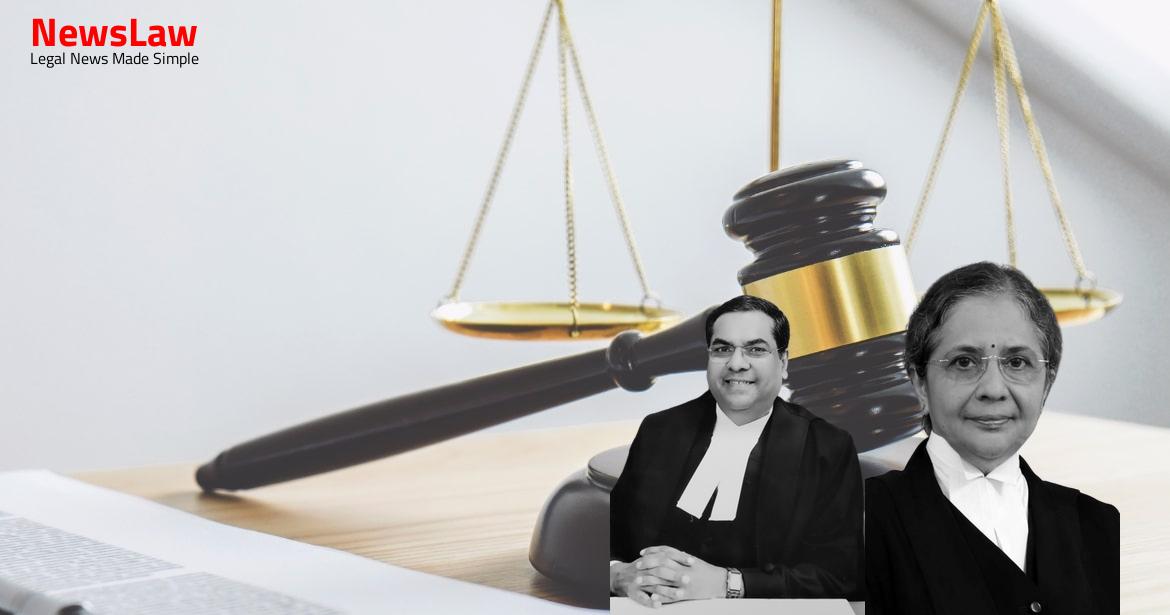In a recent landmark ruling by the Supreme Court of India, a resolution was reached in the case of a land dispute involving specific performance. The judgment favored the party seeking specific performance, providing insights into the interpretation of relevant laws and procedures. This ruling has significant implications on legal matters related to land agreements and appeals processes.
Facts
- The appellant, who is the plaintiff, sought specific performance of an agreement to sell dated November 5, 2004, for land measuring 193 kanals 18 marlas at the rate of Rs.1,27,000/- per acre.
- An amount of Rs.12,50,000/- and Rs.1,00,000/- was paid to the defendants as earnest money at the time of executing the agreement to sell.
- The suit for specific performance was filed on April 3, 2006.
- In the second appeal, the decree for specific performance of the agreement was declined, and a decree for the recovery of Rs.13,50,000/- paid by the appellant along with interest at the rate of 12% was granted instead.
- An appeal against this judgment and decree was dismissed on August 11, 2012.
Also Read: Supreme Court Ruling on Dowry Harassment and Suicide Case
Arguments
- Defendants did not raise a plea in the written statement that Dhanwant Singh was not authorized to act on behalf of the plaintiff.
- The defendants’ plea that Dhanwant Singh was not authorized is untenable as they accepted the amount from him.
- High Court found that the plaintiff was ready to perform the agreement and that Dhanwant Singh was not the attorney appointed by the appellant.
- The High Court’s interference was justified as the lower courts’ findings were contrary to the law and not based on the facts on record.
- Judgments in certain cases were deemed contrary to the Constitution Bench judgment in Pankajakshi case.
- Controversy over earnest money, lack of convincing evidence presented by the defendants.
- First power of attorney did not relate to the land in question, and the subsequent one empowered Dhanwant Singh to purchase property in the future, not related to the executed agreement.
- Defendant Nos. 1 and 2 failed to produce any power of attorney in their favour on behalf of Defendant Nos. 3 and 4.
- Defendant Nos. 3 and 4 contested the authority of Defendant Nos. 1 and 2 to enter into the agreement on their behalf due to the lack of a general power of attorney.
- The plaintiff, through her son Dhanwant Singh, entered into an agreement for purchasing land by paying Rs. 13,50,000 to the defendants.
- Defendants accepted the payment but disputed the authority of Dhanwant Singh to act on behalf of his mother in the agreement.
- Both parties were engaging in deceptive behavior by playing ‘hide and seek’.
- The argument presented is that the first appellate court’s decision is contrary to the law due to the plaintiff’s alleged failure to prove readiness and willingness to perform the agreement.
- Respondents did not contest that the first appellate court erred in determining any material issue of law or procedural error, thus questioning the High Court’s interference in the findings of fact solely based on the power of attorney issue.
Also Read: Case of Technical Equipment Officer Appointment Criteria Dispute
Analysis
- The scope of interference in second appeal in Punjab and Haryana is governed by Section 41 of the Punjab Act and Section 100 of the CPC.
- Interference in second appeal is not permitted on findings of fact, even if they are deemed erroneous.
- The High Court exceeded its jurisdiction by interfering with findings of fact based on an alternate view of the evidence.
- The jurisdiction to interfere in second appeal lies only in cases of errors in law or procedure, not mere errors in fact.
- The judgment of the High Court was set aside and the decree passed by the lower appellate court was restored.
- The appellant was granted two months to pay the balance sale consideration to defendant Nos. 1 and 2.
- If the defendants fail to receive the amount, the plaintiff is entitled to deposit the amount with the executing court for the execution of the decree.
- The High Court’s interference in second appeal led to confusion and exceeded its jurisdiction under Section 100 of the CPC.
- The Judge of the High Court had no authority to interfere with findings of fact given by the first appellate court based on relevant evidence.
- An appeal shall lie to the High Court from every decree passed in appeal by any Court subordinate to the High Court on specific grounds.
- The specific grounds include the decision being contrary to law, custom, or usage having the force of law, and the decision failing to determine a material issue of law or usage.
- An appeal may also lie from an appellate decree passed ex parte.
- The scope of interference in second appeals within the Punjab and Haryana High Court is to be the same as the CPC existed prior to the 1976 amendment.
- The High Court clearly exceeded its jurisdiction under Section 100 in reversing the concurrent findings of fact given by the trial court and the then appellate court on the question of title and adverse possession.
- The Supreme Court emphasized that the High Court cannot entertain a second appeal on the ground of erroneous finding of fact, even if it is grossly erroneous.
- The court reiterated that justice must be administered in accordance with the law, and the scope of Section 100 has been drastically curtailed and narrowed down after the 1976 amendment.
- The Judicial Committee in previous cases stated that there is no jurisdiction to entertain a second appeal on the ground of erroneous finding of fact, regardless of how gross the error may seem to be.
- In another judgment, the rationale behind permitting second appeals on a question of law after the amendment was considered, following precedents set by the Privy Council and different High Courts in the country.
- A judgment by a Division Bench of the Punjab and Haryana High Court emphasized the limitations of second appeals under Section 100 of the Civil Procedure Code and the Punjab Courts Act, based on previous judicial scrutiny and Supreme Court decisions.
Also Read: Supreme Court Judgement on Transfer of Mining Environmental Clearances
Case Title: RANDHIR KAUR Vs. PRITHVI PAL SINGH .
Case Number: C.A. No.-005822-005822 / 2019



